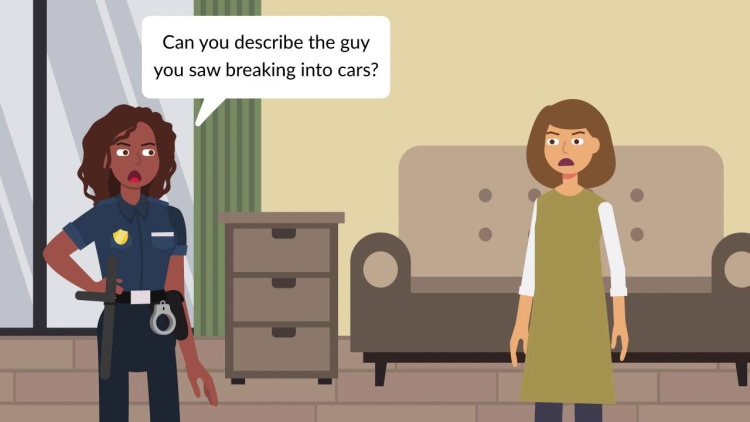Perry v. New Hampshire
United States Supreme Court
565 U.S. 228 (2012)

- Written by Sara Rhee, JD
Facts
On August 15, 2008, the Nashua Police Department received a report that an African American male was breaking into cars in the parking lot of an apartment building. Officer Nicole Clay arrived on the scene and found Barion Perry (defendant) holding two car-stereo amplifiers. During this time, Nubia Blandon alerted her neighbor, Alex Clavijo, that she had witnessed someone breaking into his car. Clavijo went to investigate and found that his car had been broken into and that his speakers and amplifiers were missing. Clay had Perry stay in the parking lot with another officer while she questioned Blandon and Clavijo in the building. Blandon stated that she had seen an African American man opening the trunk of Clavijo’s car. Clay asked Blandon for a specific description of the man. Blandon pointed outside her window to where Perry and the officer stood in the parking lot and identified Perry as the man she had seen. Perry was charged with theft by unauthorized taking and criminal mischief. Perry moved to suppress Blandon’s identification on grounds that it was suggestive and in violation of his Sixth Amendment rights. The New Hampshire Superior Court denied Perry’s motion. The jury found Perry guilty of theft. The New Hampshire Supreme Court affirmed his conviction.
Rule of Law
Issue
Holding and Reasoning (Ginsburg, J.)
Concurrence (Thomas, J.)
Dissent (Sotomayor, J.)
What to do next…
Here's why 905,000 law students have relied on our case briefs:
- Written by law professors and practitioners, not other law students. 47,100 briefs, keyed to 995 casebooks. Top-notch customer support.
- The right amount of information, includes the facts, issues, rule of law, holding and reasoning, and any concurrences and dissents.
- Access in your classes, works on your mobile and tablet. Massive library of related video lessons and high quality multiple-choice questions.
- Easy to use, uniform format for every case brief. Written in plain English, not in legalese. Our briefs summarize and simplify; they don’t just repeat the court’s language.





